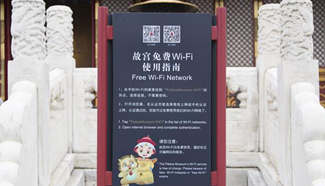SAN FRANCISCO, Aug. 1 (Xinhua) -- Researchers at the Stanford University School of Medicine have found that a protein, known as CD47, has a role in enabling atherosclerosis, the process underlying heart attacks and strokes.
CD47 on the surface of many cells, including those of tumor cells in the human body, gives a so-called "don't eat me" signal to immune cells known as macrophages, indicating that a cell is alive, still going strong and part of a person's healthy tissue.
In a new study, published recently online in Nature, reserachers at Stanford and two other U.S. universities report that CD47 is extremely abundant in atherosclerotic tissue compared with normal vascular tissue, and correlated with risk for adverse clinical outcomes such as stroke.
Their findings were based on genetic analyses of hundreds of human coronary and carotid artery tissue samples collected at Stanford and at Karolinska Institute in Sweden. And looking at data from other genetic research, they learned that surplus CD47 in atherosclerotic plaques strongly correlates with elevated levels of a well-known inflammation-promoting substance called TNF-alpha.
Further experiments showed that TNF-alpha activity prevents what would otherwise be a progressive decrease of CD47 on dying cells, according to a release from Stanford Medicine News Center. Hence, those cells are less susceptible to being eaten by macrophages.
Atherosclerosis is caused by the deposition of fatty substances along arterial walls. Over the years, these substances form plaques. It is known that numerous dead and dying cells accumulate in plaques, which inflammation renders brittle and vulnerable to rupture, the ultimate cause of heart attack and stroke.
As a cell approaches death, its CD47 surface proteins normally start disappearing, exposing the cell to macrophages' garbage-disposal service. But atherosclerotic plaques are filled with dead and dying cells that should have been cleared by macrophages, yet weren't. In fact, many of the cells piling up in these lesions are dead macrophages and other vascular cells that should have been cleared long ago.
"It seems that heart disease may be driven by our immune system's inability to 'take out the trash,'" Nicholas Leeper, associate professor of vascular surgery and of cardiovascular medicine at Stanford, was quoted as saying.
"The problem could be an endless loop, in which TNF-alpha-driven CD47 overexpression prevents macrophages from clearing dying cells in the lesion. Those cells release substances that promote the production of even more TNF-alpha in nearby cells."
Leeper and Irving Weissman, professor of pathology and of developmental biology and director of Stanford's Institute of Stem Cell Biology and Regenerative Medicine, have filed a patent describing inhibition of CD47 as a method to prevent atherosclerosis.
In a laboratory dish, anti-CD47 antibodies induced the clearance of diseased, dying and dead smooth muscle cells and macrophages incubated in conditions designed to simulate the atherosclerotic environment. In several different mouse models, blocking CD47 with anti-CD47 antibodies dramatically countered the buildup of arterial plaque and made it less vulnerable to rupture.
The same agent, as a biological drug, is being tested in clinical trials in cancer patients.
If the success is borne out in human studies on cardiovascular disease, the drug could be used to combat the world's No. 1 killer.










